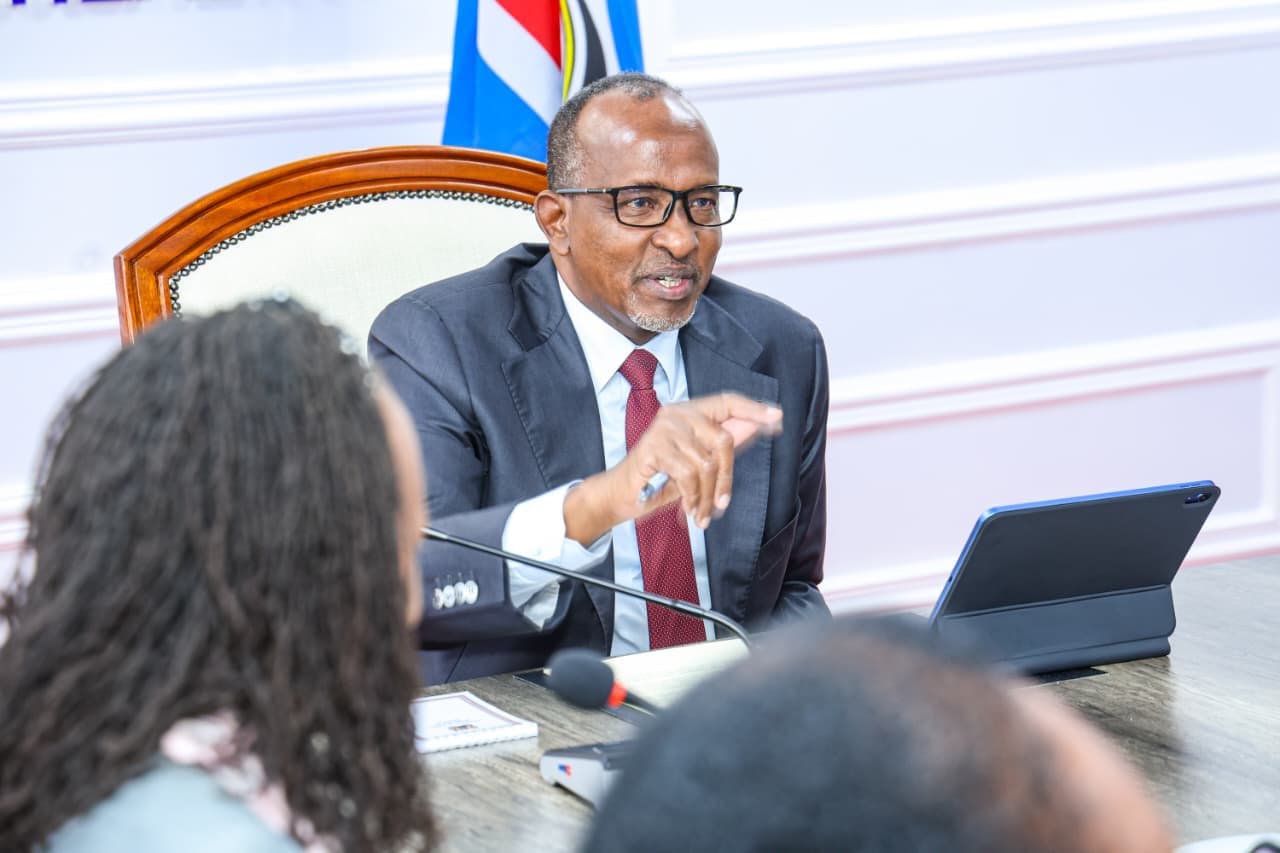We're loading the full news article for you. This includes the article content, images, author information, and related articles.
Health Cabinet Secretary Aden Duale frames the controversial Computer Misuse and Cybercrimes Act as a tool for moral protection, urging religious leaders to support it despite a High Court order suspending sections that civil liberties groups warn will stifle free expression.

NAIROBI, KENYA – Health Cabinet Secretary Aden Duale on Thursday, October 30, 2025, called on Muslim leaders to rally behind the newly amended Computer Misuse and Cybercrimes Act, arguing it is essential for upholding Islamic morality and protecting children from harmful online content. His remarks, made at the Jamia Mosque in Nairobi, place him in direct opposition to a growing chorus of civil society organizations and a recent High Court ruling that has halted the implementation of the law’s most contentious clauses.
Speaking during the launch of a book on the history of Jamia Mosque, Duale specifically defended Section 27 of the Act, which deals with cyber harassment. He framed the law as a crucial barrier against pornography and other content he deemed morally corrupting for the youth. “Section 27 of the Cybercrime Act was passed when I was the Leader of the Majority in Parliament, and that is the section which protects our children from accessing pornographic content,” Duale stated, as reported by the Daily Nation on October 30, 2025. He urged religious and political leaders to publicly support the legislation to “save our children from accessing content that interferes with their morals.”
The law in question is the Computer Misuse and Cybercrimes (Amendment) Act, 2024, which President William Ruto signed into law on October 15, 2025. The amendment significantly toughened the original 2018 Act, introducing severe penalties for cyber harassment, including fines of up to KSh 20 million or a ten-year prison sentence. However, the law’s implementation was swiftly challenged in court.
On October 22, 2025, High Court Justice Lawrence Mugambi issued a conservatory order suspending the enforcement of Section 27(1)(b), (c), and (2) of the amended act. The ruling came after a petition filed by activist Reuben Kigame and the Kenya Human Rights Commission (KHRC), who argued the provisions were unconstitutionally vague and posed a significant threat to freedom of expression guaranteed under Article 33 of the Constitution. Critics argue that ambiguous terms like “detrimental effect” or “grossly offensive” could be weaponized to silence journalists, activists, and government critics.
Duale expressed bewilderment at the court's decision, referencing a past ruling that had upheld the 2018 law. “The court said it was constitutional. I was shocked the other day when another judge didn't know that his counterpart two years ago had declared it was constitutional,” he remarked on Thursday. This refers to a February 2020 High Court decision that lifted an earlier suspension on 26 sections of the original 2018 Act, which had been challenged by the Bloggers Association of Kenya (BAKE).
The debate over the Cybercrime Act highlights a deep-seated tension between the government's stated aim of protecting citizens from online harm and the protection of fundamental digital rights. President Ruto has defended the law as a necessary tool to combat cyberbullying, hate speech, terrorism recruitment, and the spread of explicit content. Speaking on October 23, 2025, the President insisted the law was not intended to curtail freedom of expression but to protect the vulnerable, noting that many young people were suffering due to online harassment.
However, human rights and media freedom organizations remain unconvinced. Groups such as ARTICLE 19 and KICTANet have consistently warned that the law's broad and ill-defined offenses, particularly those related to the publication of “false information,” create a chilling effect on public discourse. They argue that such provisions grant the state excessive power to determine truth and punish dissent, which is contrary to democratic principles. Civil society groups contend that less restrictive measures, such as robust data protection and promoting digital literacy, are more effective ways to create a safe online environment without infringing on constitutional freedoms.
The latest legal challenge also raises procedural questions. Kiambu Senator Karungo wa Thang'wa has argued that the amendment bill, among others, was unconstitutionally assented to by the President without being tabled in the Senate, despite touching on matters of national and county interest. As the judiciary prepares to hear the substantive case against the suspended sections, the future of online expression in Kenya hangs in the balance. Duale's call for religious leaders to join the fray adds a new, influential dimension to a debate that will define the boundaries of Kenya's digital public square.
Keep the conversation in one place—threads here stay linked to the story and in the forums.
Other hot threads
E-sports and Gaming Community in Kenya
Active 8 months ago
The Role of Technology in Modern Agriculture (AgriTech)
Active 8 months ago
Popular Recreational Activities Across Counties
Active 8 months ago
Investing in Youth Sports Development Programs
Active 8 months ago
Key figures and persons of interest featured in this article